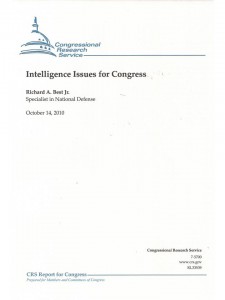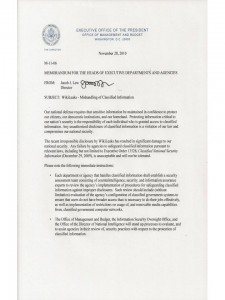NIGHTWATCH Comments on two Wikileak reports in the news: The Guardian and The New York Times today highlighted one leaked report that North Korea sold Iran 19 BM-25 nuclear-capable ballistic missiles and another that alleged that Chinese officials support Korean unification and expect North Korea to collapse. Both deserve comment.The North Korean BM-25 missile is based on the Soviet SS-N-6 submarine launched ballistic missile which North Korea obtained from the Soviet Union more than 20 years ago. The SS-N-6 is one of the most reliable nuclear delivery systems ever developed.
North Korean engineers converted it into a truck launched vice submarine launched system, which was fielded in North Korea.more than five years ago. From North Korea, this missile can reach Guam.
Iran bought a battalion of these missile about five years ago according to FAS — a photo of the missile can be found on the Internet. From Iran, the missile can reach Moscow and Eastern Europe.
Experts say that from its inception this missile was designed as a nuclear warhead carrier. Iran's possession of this missile is one of the more salient pieces of indirect evidence that support those who argue that Iran intends to develop nuclear weapons. Any other warhead on this missile underutilizes its capabilities.
The point of this comment is that the US diplomat reporting officer mentioned in the report seemed unaware that this information has been in open sources since at least 2006. Moreover, the writers for The Guardian and The New York Times failed to do due diligence searches on the BM-25 sale to Iran.
More knowledgeable observers have known for years that Iran has a reliable nuclear warhead delivery system in these missiles. That information is always important, but it is not new and no longer sensational. Five years ago it was blockbuster news.
As for the report on China supporting Korean reunification, The Guardian's analyst overreached, at least based on the portions of the report that he quoted and missed much of the significance of the material he had at hand.
The portions of the telegram that he quoted did not support the headline that China supports Korean unification. It supported the proposition that China would not stand in the way of reunification if the US took the lead and made it happen.
The Guardian writer was not alone in interpreting Chinese ambiguous language as a green light because apparently US and South Korean officials began to make plans on reunification, according to accounts by other repositories of the leaked reports.
The story behind the story is that China only makes statements of this kind when it is seriously concerned about the survival of the Kim regime and wants to set in place plans for avoiding responsibility for the North Koreans during a political and economic implosion.
The Chinese made even more explicit suggestions during the severe famine of 1995 and 1996 when the North Korean economy devolved into a barter system that almost imploded. After the food crisis stabilized with UN and South Korean help, China denied it ever made suggestions about reunification.
The Chinese laid out a trap. If the public distribution system for food and daily necessities ceases to function, North Korea would become the world's largest ever refugee camp, with between 20 and 23 million people requiring food, public health provisions and medical care every day.
No one is smart enough to know how to take care of a dependent population that large. Plus the North's infrastructure is so decrepit that it has discouraged South Korea from investing in it or pursuing reunification with much vigor. That means that the roads and bridges in North Korea cannot support sustained aid convoys for long and would have to be rebuilt as part of the humanitarian aid problem. The same is true of the telecommunications system and the railroads.
The Chinese want no part of that burden or cost and would be pleased for the US and its allies to shoulder them. Consider, how do you disarm a hungry million-man army that has been raised from infancy to be hostile to Americans? The Chinese do not know the answer and would prefer to see Americans and Koreans die trying to find out, rather than Chinese soldiers.
Finally, the statements by the Chinese diplomats are not consistent with Chinese actions, aid and investments to prop up the Kim regime. That means the statements probably were made in the context of a hypothetical and imminent regime collapse, as in the mid-1990s. Today's news treatment made it seem as if China supports reunification now, which is not accurate.
The lesson for new analysts is that a statement by a foreign official or diplomat, as reported in a diplomatic telegram, always carries spin. If it sounds too good to be true, it is too good to be true, even if it is partly true. Krauthammer said on 29 November that state department telegrams report our diplomats lying to their diplomats lying to our diplomats. That characterization is a bit harsh, but it is a useful starting point for analysis. Evaluation of diplomatic traffic requires subtlety and skill and lots of critical questioning. The meaning of the language is never self-evident.
The substantive information disclosed to date is somewhat embarrassing, but not all that newsworthy. One element of damage from the leaks not mentioned in mainstream reporting is the establishment of feedback links to the security establishments of the foreign countries.
Foreign security establishments can now develop a very good understading of what the US thinks about key issues; why it thinks that way; whether it is accurate or misguided in their view; whether US diplomats put personal spin on their reports; and whether they perceive accurately, understand the significance of what they are told and report is in verbatim and in spirit, as the host country judges such traits. With that knowledge, they can guide their own diplomats and officials more confidently.
Diplomacy and deception both require a feedback link so that the diplomat or the deceiver can fine tune the negotiations or the deception operation. In this respect, the leaks set up US ambassadors and senior officials to be manipulated because the other side knows the “real” US views on hundred of issues in hundreds of countries. That explains why national leaders can minimize and excuse the more sensational disclosures because all received an intelligence bonanza that should enhance their future engagements with US diplomats and officials.
NIGHTWATCH KGS Home
Phi Beta Iota: Next to Jack Davis, the author of NIGHTWATCH is our favorite published analyst–this is how analysts are supposed to think.








